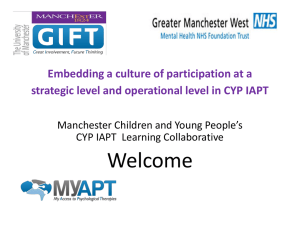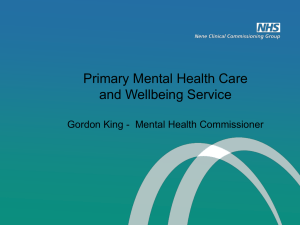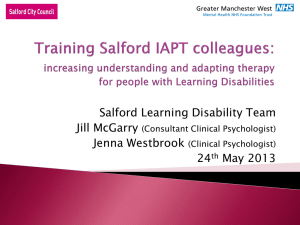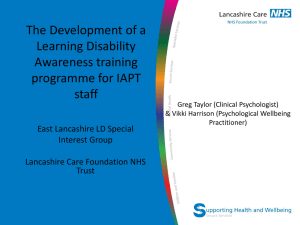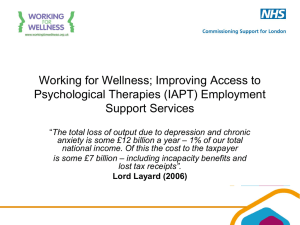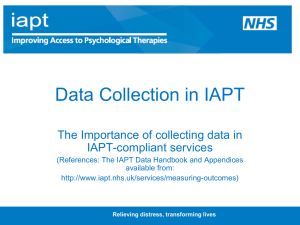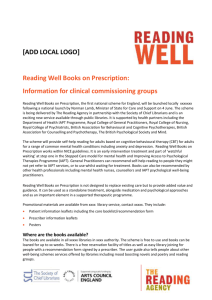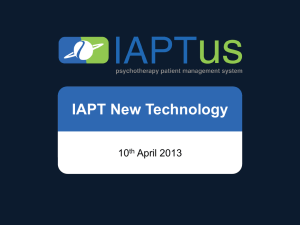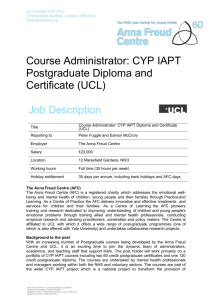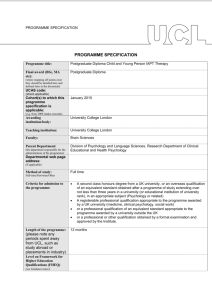IMPROVING ACCESS TO PSYCHOLOGICAL THERAPIES (IAPT
advertisement
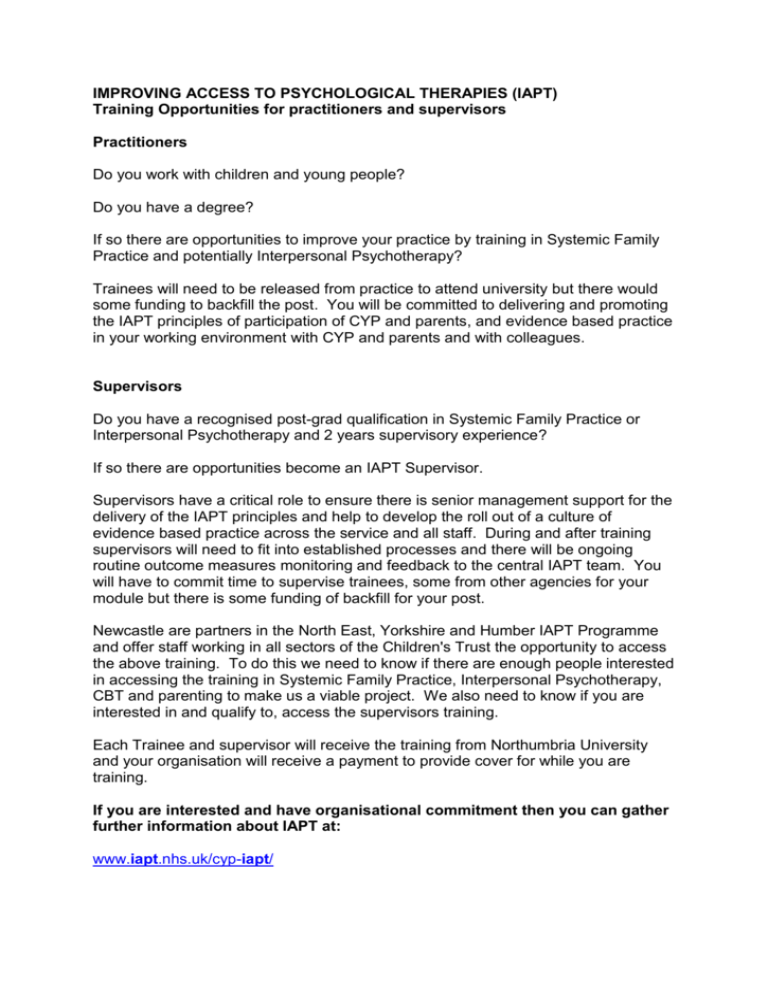
IMPROVING ACCESS TO PSYCHOLOGICAL THERAPIES (IAPT) Training Opportunities for practitioners and supervisors Practitioners Do you work with children and young people? Do you have a degree? If so there are opportunities to improve your practice by training in Systemic Family Practice and potentially Interpersonal Psychotherapy? Trainees will need to be released from practice to attend university but there would some funding to backfill the post. You will be committed to delivering and promoting the IAPT principles of participation of CYP and parents, and evidence based practice in your working environment with CYP and parents and with colleagues. Supervisors Do you have a recognised post-grad qualification in Systemic Family Practice or Interpersonal Psychotherapy and 2 years supervisory experience? If so there are opportunities become an IAPT Supervisor. Supervisors have a critical role to ensure there is senior management support for the delivery of the IAPT principles and help to develop the roll out of a culture of evidence based practice across the service and all staff. During and after training supervisors will need to fit into established processes and there will be ongoing routine outcome measures monitoring and feedback to the central IAPT team. You will have to commit time to supervise trainees, some from other agencies for your module but there is some funding of backfill for your post. Newcastle are partners in the North East, Yorkshire and Humber IAPT Programme and offer staff working in all sectors of the Children's Trust the opportunity to access the above training. To do this we need to know if there are enough people interested in accessing the training in Systemic Family Practice, Interpersonal Psychotherapy, CBT and parenting to make us a viable project. We also need to know if you are interested in and qualify to, access the supervisors training. Each Trainee and supervisor will receive the training from Northumbria University and your organisation will receive a payment to provide cover for while you are training. If you are interested and have organisational commitment then you can gather further information about IAPT at: www.iapt.nhs.uk/cyp-iapt/ Background The Children and Young People's (CYP) IAPT Project is a Service Transformation Project for Child and Adolescent Mental Health Services (CAMHS). The focus of CYP IAPT is on building a more collaborative relationship between children, young people, families and therapists through use of frequent outcome monitoring and extending participation in service design and feedback, extending training to staff and service managers in CAMHS and embedding evidence based practice across services, making sure that the whole service, not just the trainee therapists, use session by session outcome monitoring. In Newcastle the CAMHS covers anyone working with children and families. CYP IAPT is different to the Adult IAPT programme. CYP IAPT is not creating new standalone services. Although the CYP IAPT project sits within the overall IAPT programme, and has learned from the adult experience, it is not the same. It works with existing services and established local systems. Commissioners of services and those working in Adult IAPT services may find our Guidance for Working with Under 18s especially useful. In years one to two, CYP IAPT has supported training in two therapies. The choice of CBT and Parenting for 3-10 year olds was based on best evidence (NICE) and the prevalence of emotional disorders such as anxiety, depression and behavioural problems in children and young people. In year three, CYP IAPT developed training in evidence based systemic work with families. This year CYP IAPT are offering the three therapies identified above and may offer training in evidence based Interpersonal Therapy. WHAT TO DO NEXT. 1 If you are interested then please talk to your manager and gain their permission and support to express an interest in applying for a course. 2. Let Trisha Hudson know you are interested in the training, which course and ask your manager to confirm you have your organisations support. Make sure you expression of interest is with Trisha by 30th May 2014 If you have any questions please contact Trisha Hudson (trisha.hudson@newcastle.gov.uk)
